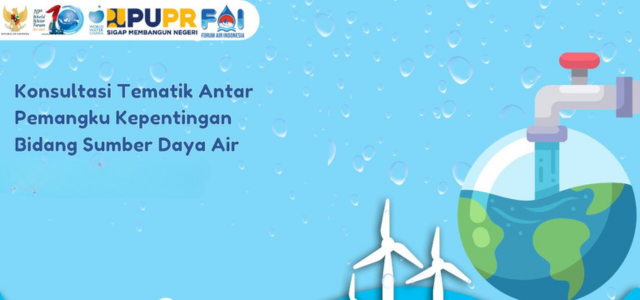Within two days, the discussions were defined into two focuses, with the first focus on the priority of national alternative innovative solutions toward the water resources management for the environment and climate- hydrometeorological condition on climate change, including La Nina and El Nino, and its impact toward water supply for agriculture, including water quality. The second part of the discussion was focused on the priority of national alternative innovative solutions toward disaster resilience, specifically for community resilience towards La Nina and El Nino.
Later that day, it was concluded that a comprehensive approach is needed to develop a river area-based master plan that can be used as a reference for all relevant agencies. This master plan should be binding and regulated to focus on reduction of pollution (zero delta pollution), sedimentation (zero delta sedimentation) and discharge (zero delta discharge), as impacted by urban and economic growth.
On the second day, the discussion was focused on national priority and innovative solution on water resources in different cross cutting sectors (energy, industry, and agriculture) and the information system on water resources. The second part of discussion was focused on the challenges in safe water and sanitation (WASH) access, and its innovative solutions toward population growth and economic development.
During the discussion in the second day, the main challenges that were identified were mostly related to Integrated Water Resources Management: internal coordination, institutionalization, enabling environment (law and policy), multi-stakeholders’ coordination and funding. Moreover, it was identified that planning was not properly implemented. Thus, it needs the Penta helix coordination with government, community, researcher, industry, and environment. It was also mentioned the need for adjustments to agricultural management, the creation of IDF curve and implementation of zero delta discharge policy. Prioritisation of drinking water supply budgeting and Integrated water management innovation.
